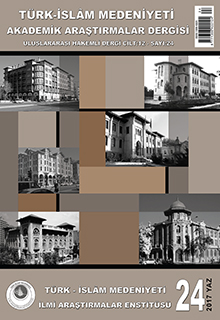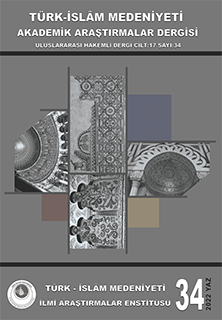Jerusalem: The Religious Background of a City which Longs for Peace
Keywords:
Peace, Jerusalem, Holy City, Al Aksa MosqueAbstract
Peace throughout the world is serenity and an inner calm. However, in Jerusalem, peace means more than that and is a religious satisfaction. It is a religious peace felt by every religious member. From all Abrahamic religions perspectives, Judaism, Christianity and Islam, Jerusalem is a sacred city. The reason for this is that Jerusalem is a city where the relics of these religions are being kept, and the footsteps of King David, King Solomon and the Prophet Muhammed can be found. Due to these facts, Jerusalem is a holy place for these three monotheistic religions. It is mentioned in their holy books. In the Torah, the New Testament and the Quran, it is stated that King Solomon built the holy home (Beyt-i Mikdaş) for the Jewish people, Jesus the Messiah preached the New Testament and the Prophet Muhammed came to the city in one of the two parts of the Night Journey, during the Miraj. For this reason, Jerusalem must have a special status, and it should be opened to all monotheistic religions members and followers because it is a legacy for all of these three religions.
References
-----------, 2003, “Kitab-ı Mukaddes”, İstanbul.
-----------, 1984, “Documantation Catholique”, 3 Juin, No, 1875, P: 551-552
HRUBY K., 1993, “Dictionnaire de Religione”, 2, vol.Paris.
Nouvelle De L’Institut Catholique de Paris,1949
MASSIGNON AL. Quds, 1949, “Temoignage Chrétienne”, 30 Avril.
BORMANS M. Louis, “Massignon et Jerusalem”, Bulletin de L’ordre Equester des Cheval du Saint-Sepulcre, Septembre, P. 210
EL-CEVZİ, 1974, “Fedailü’l Kuds Ve’Şam, Dâru’l Afaki’l Cedide”, Beyrut.
İBN TEYMİYYE, ---------, Fi Ziyareti Beyt-il Makdis
Downloads
Published
How to Cite
Issue
Section
License

This work is licensed under a Creative Commons Attribution-NonCommercial 4.0 International License.







